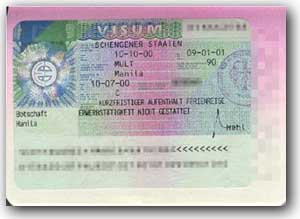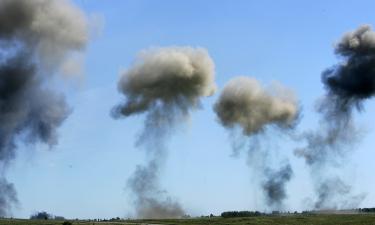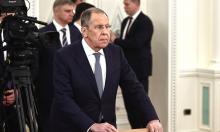Russia's efforts to ease visa rules with Europe bring little success
European states lose billions of euros because of tough visa rules with Russia
The Russia-EU summit finished in London today. The signing of the special agreement to simplify the visa-entry regime between Russia and the European Union was supposed to become the central event of the top level meeting. The agreement, however, was not signed due to technical reasons. The Russian delegation convinced European officials of the need to sign the agreement until the end of the year and set the single cost of visas to Europe. 
Russia and the EU agreed upon the signing of the special agreement to simplify the visa entry back in May of the current year. An official spokesman for the Russian delegation at the talks, Vasily Likhachev, stated on the threshold of the summit that the signing of the agreement had been delayed on account of certain technical reasons.
The summit has brought certain results indeed, although they still exist only verbally. Scientists, students and journalists already have an opportunity to enjoy simpler rules when receiving visas to Germany, France and Italy. Those rules are to be extended to other members of the European Union too. In addition, the EU and Russia plan to set the common cost for European visas on the level of 35 euros. Thirty-five euros is the current price of Schengen visas: the reduction of visa prices will touch upon only new members of the European Union, the Czech Republic and Hungary, for example. Visas to Great Britain are to become cheaper as well: a visa to Great Britain currently costs 50 pounds sterling (70 euros). The price of the Polish visa, however, will grow twice.
As for tourist visas and visas for private journeys, things will so far remain as they are. The President of the European Committee Jose Manuel Barroso stated that the entire abolishment of visas would be the final goal of such cooperation between the European Union and Russia, although there is hardly any progress in this direction. Russian officials have been taking active efforts to extend the list of citizens who could enjoy certain benefits in the visa registration process, but Europe shows no response at this point at all. It is worthy of note that European states lose billions of euros because of tough visa rules with Russia. Spokespeople for the tourist industry of the Czech Republic, for example, are extremely concerned about the current situation: the income from the tourist industry has dropped five times during the years of the visa entry.
The director of the Institute of Economy of the Russian Academy of Sciences, Ruslan Grinberg, believes that Europe's wish not to simplify the visa-entry regime is connected with EU's poor knowledge of Russia.
On the other hand, it seems that there is another aspect to this problem – the Kaliningrad enclave. If the EU simplifies the registration of visas for Russia, Europe will lose a very important tool to exert pressure on Russia too. The question about the Russian-speaking population in Latvia and Estonia is rather important too: “non-citizens” are still scared of traveling outside the state of their living for they fear that they may not be able to return there. Most likely, the EU prefers to turn a blind eye on the situation with the Russian-speaking population in the Baltic states of Latvia, Lithuania and Estonia. Unlike Boris Yeltsin, Vladimir Putin made it clear that the problem was the key question of relations between Moscow and Brussels. Vasily Likhachev told Pravda.Ru that it would take Latvia and Estonia about 30 years to settle the problem of Russian “non-citizens.” The European Union, however, is not willing to talk about the problem in spite of the fact that it roughly violates a whole number of international agreements and conventions on human rights.
In addition, Russian people living in the Baltic states do not want to lose their right to enjoy the visa-free entry to Europe, whereas a considerable ease of visa rules may give an incentive to many Russians to return to the Russian Federation. To crown it all, one should say that red tape, numerous documents, weary interviews and open boorishness of consulate officers discourage millions of Russians from looking towards Europe.
Vadim Trukhachev
Subscribe to Pravda.Ru Telegram channel, Facebook, RSS!




